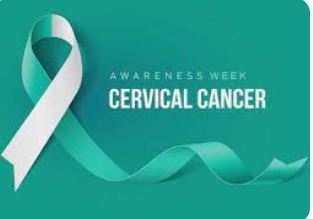
Simple, routine cervical cancer tests can save Lives
Article courtesy of Mark Nardi, Communications Advisor, Kingston Health Sciences Centre
Oct. 22-28 is Cervical Cancer Awareness Week, which is why the FLA Ontario Health Team and partner, Cancer Centre of Southeastern Ontario at Kingston Health Sciences Centre (KHSC) are raising awareness about the lifesaving potential of routine cervical screening.
In 2022, over 500 people were diagnosed with cervical cancer in Ontario. It is primarily caused by the human papillomavirus (HPV) virus, which can cause abnormal cell changes that could eventually progress to cancer; however, it is highly preventable and treatable, when detected early.
The Pap test is the most effective way to prevent Cervical Cancer. During this simple 10-minute procedure, a health-care provider collects cells from the cervix, which are examined for abnormalities. This test can detect precancerous lesions long before they develop into cancer.
Who should get screened?
The Ontario Cervical Screening Program (OCSP) recommends that anyone with a cervix (women, transmasculine and non-binary people) who has ever been sexually active have a Pap test every three years starting at age 21. OCSP is reviewing these recommendations and individuals should talk to their health-care provider about whether they should wait until age 25 before testing.
Here’s what you can do.
- Speak to your health-care provider about getting vaccinated against HPV, if you have not already done so.
- Book a Pap test with your health-care provider, if you haven’t been screened, or if it’s been three years since your last test.
- If you don’t have a health-care provider, you can email PapParty@KingstonHSC.ca or phone 1-800-567-5722 ext. 6071 to learn more about Pop-Up Pap Clinics. You can also sign up for Health Care Connect, which connects unattached patients with available physicians and nurse practitioners.
Celebrating success in Cervical Cancer Screening.
For the past nine years, the Cancer Centre of Southeastern Ontario has organized annual “Pap Party” clinics for unattached patients in need of cervical cancer screening. These clinics help bridge the health care gap for unattached patients by providing access to potentially lifesaving tests.
This year marks a major success for the program as both the Kingston and Belleville clinics are fully booked. It is estimated that around 15 per cent of participants will require follow-up assessment or treatment, which can mean a lifesaving intervention.
Based on the success of this year’s program, more pop-up clinics are planned. If you need a Pap test, please call or email for more updates.
